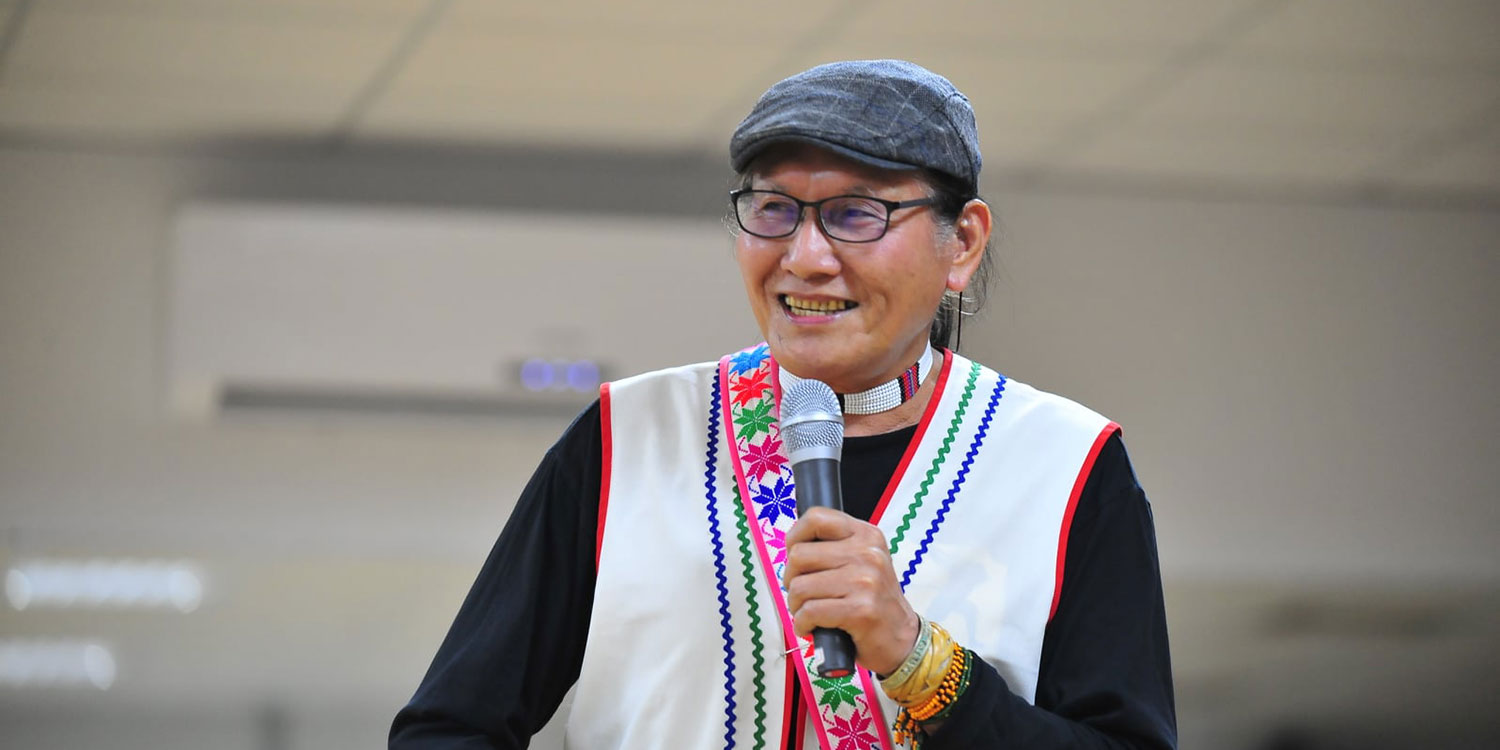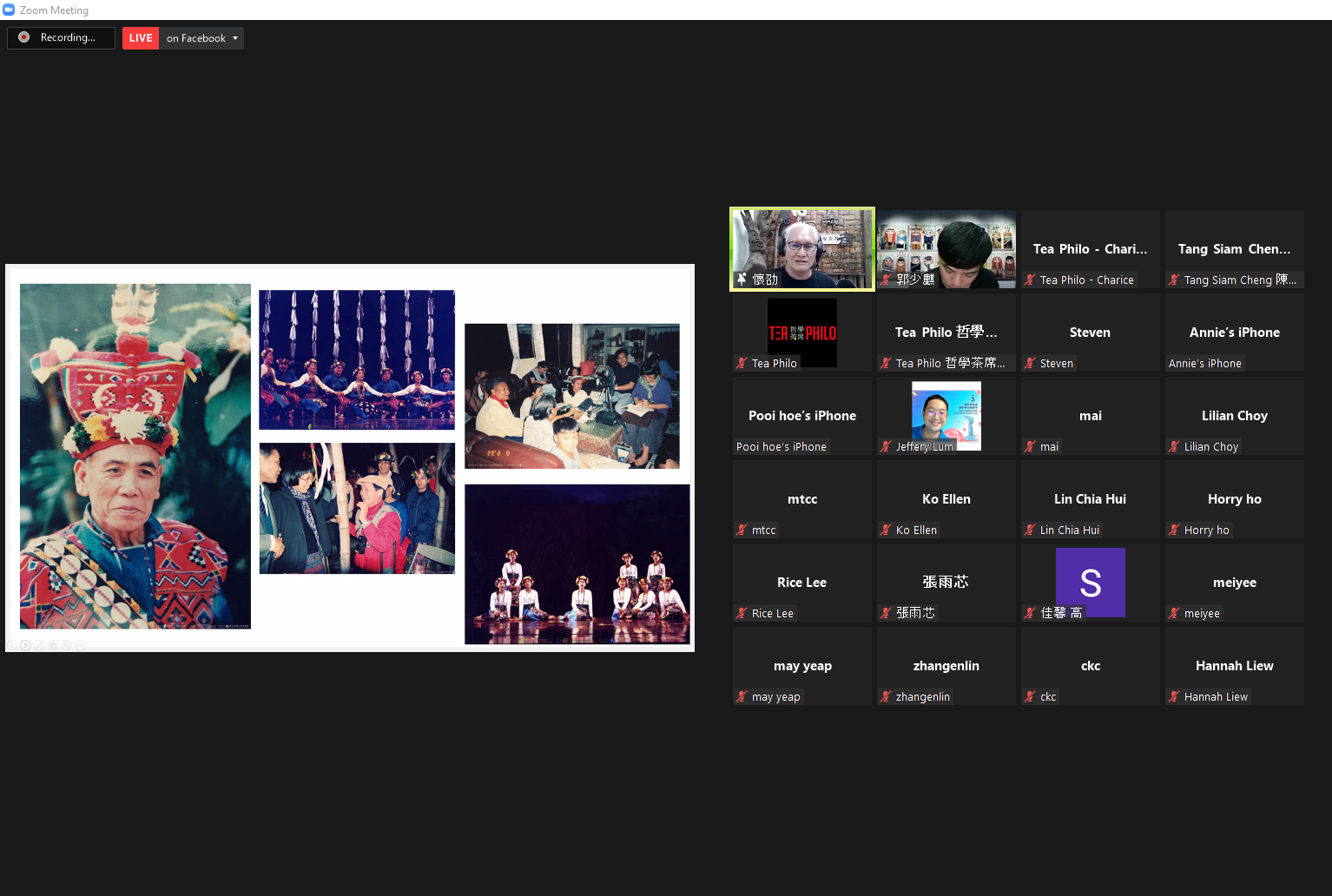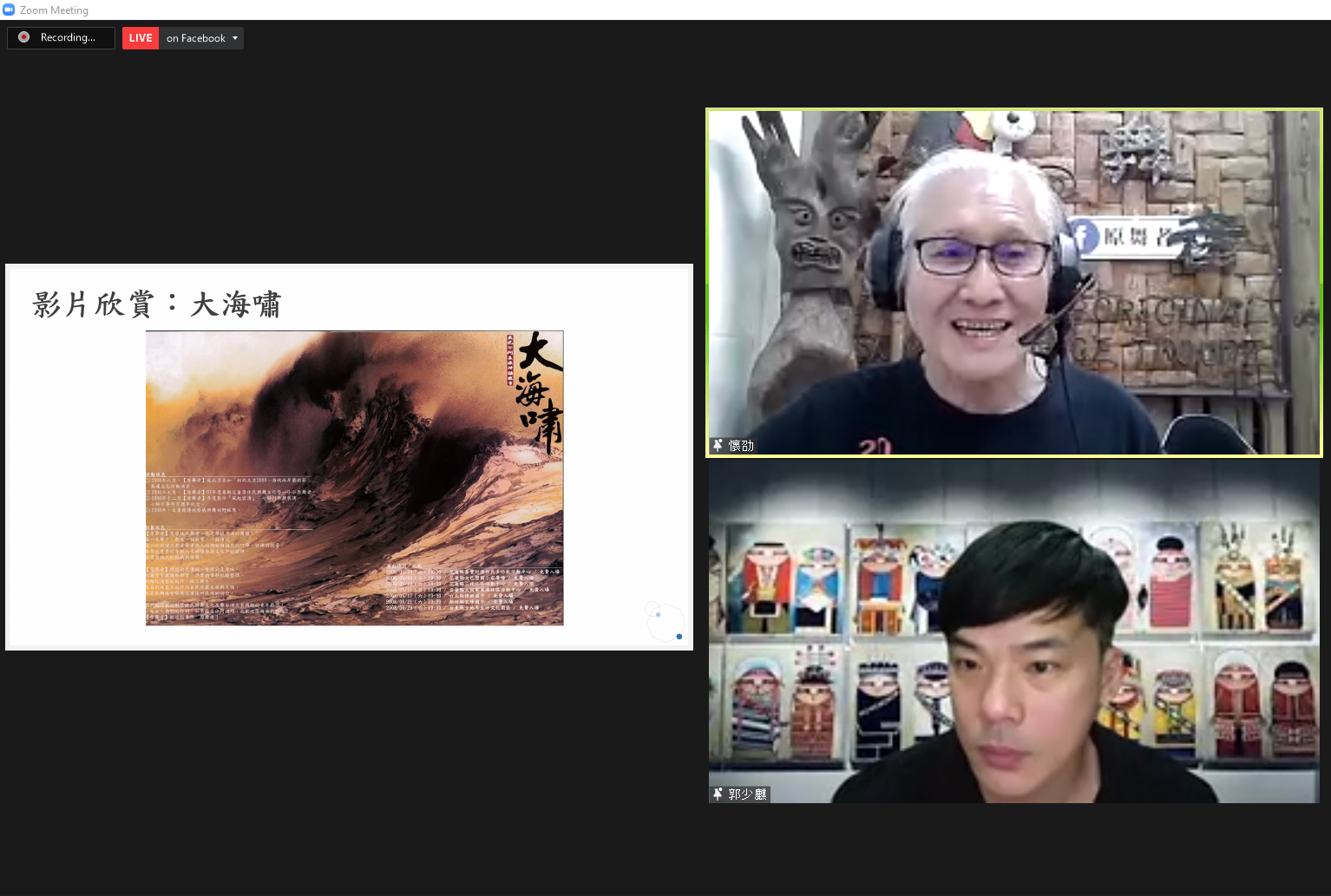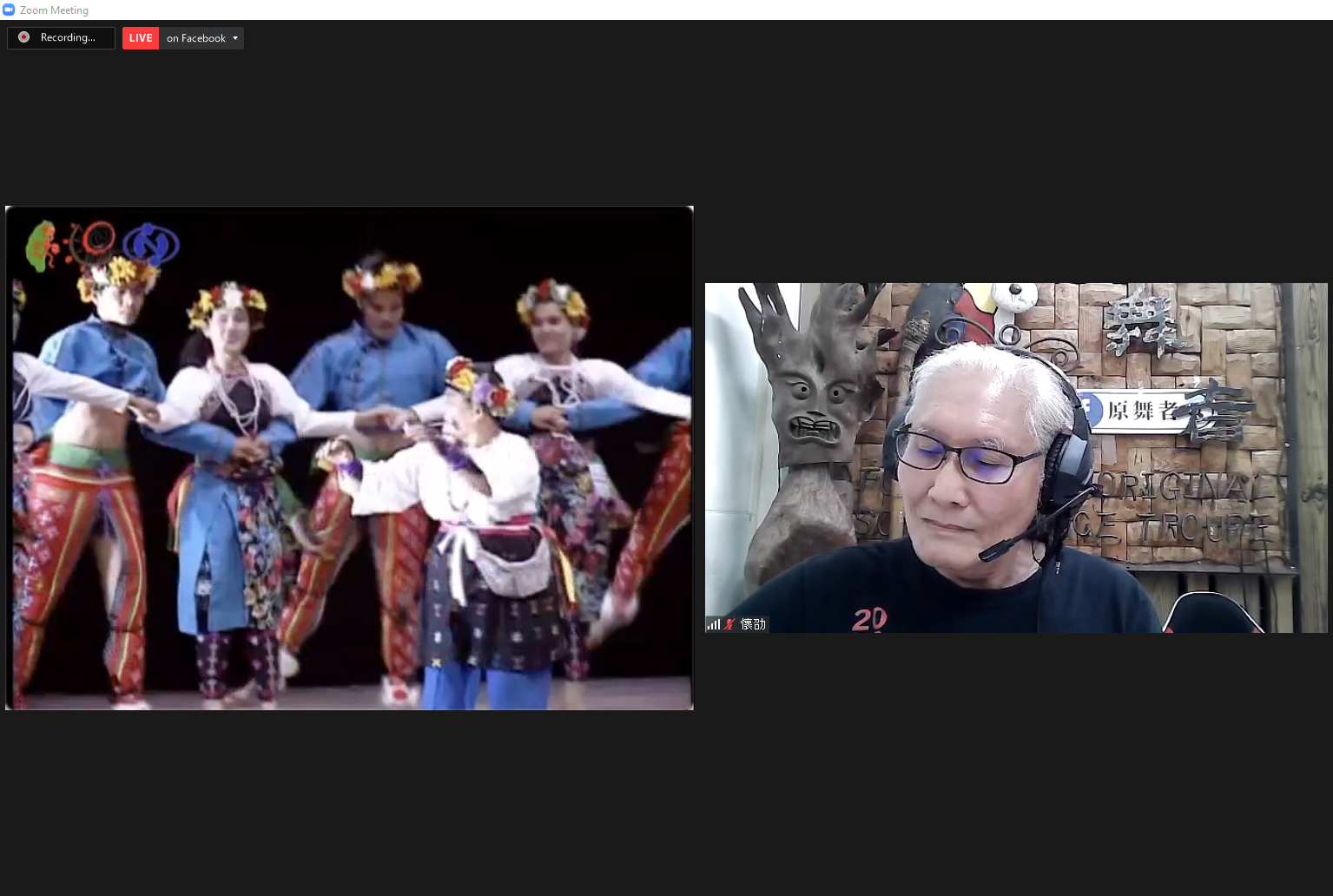Tea Philo 2022
Kakitikiting holding hands together, the landscape dream of FISDT 30.
【Tea Philo】51
Guest Speaker:
Faidaw Fagod
Speaker Bio:
Faidaw has been engaged in indigenous song and dance performances since 1991, and has accumulated more than 30 years.He has participated in the production of ethnic music and dance for more than 10 tribes, which is one of the indicators of the development of contemporary indigenous song and dance. Faidaw led Formosa Song and Dance Troupe, upholding the spirit of “adhering to tradition”, bringing tribal culture and rituals to the stage, and making the world see the beauty of Taiwan’s indigenous culture. In addition to the sharing and performancing of song and dance culture, Faidaw is also committed to education and inheritance. Through his usual teaching in high schools, universities and other schools, he cultivates indigenous young students to understand their own mother culture, and also allows interested students to learn the precious cultural asset belonging to Taiwan together.
Theme of Discussion:
Kakitikiting holding hands together, the landscape dream of FISDT 30.
Summary:
Organised by the Taipei Economic & Cultural Office in Malaysia and produced by INXO Arts & Culture (L) Foundation, Tea Philo is a series of sharing sessions revolving around the discussion of philosophies and humanities. Luminaries from Taiwan are invited to share their experiences and engage with the Malaysian audience to encourage cultural exchange.
The latest Tea Philo E-Talk session titled “Kakitikiting Holding Hands Together, the Landscape Dream of FISDT 30” featured guest speaker Faidaw Fagod, artistic director of the Formosa Indigenous Song and Dance Troupe (FISDT) from Taiwan. The talk was held in Mandarin and was moderated by Jack Kek, Malaysian choreographer, dancer, and founder of The Mythical Oriental Dance Company. The E-talk was broadcast via Zoom Meeting and Facebook Live on May 21st, 2022 and will be available for rewatch in the future on Tea Philo Facebook Page.
Taiwanese Indigenous peoples make up 2.38% of the island’s population. As of today, 16 tribes have been officially recognised and listed. Each tribe has its own distinct culture, language, customs, taboos, and social structure. Faidaw Fagod, an Amis himself, has been engaged in indigenous song and dance performances since 1991. For the past 30 years, he has performed and participated in the production of indigenous music and dance of more than 10 tribes, and is regarded as one of the important leading artists in the development of contemporary indigenous music and dance.
During the talk, Faidaw shared with an engaging audience FISDT’s journey of creating performing art works deeply rooted in indigenous experiences and cultures, as well as the challenges they encountered along the way. Faidaw mentioned that when FISDT starts working on a new production, it does not start with choreographing, rehearsing or training right away.
Instead, the dance troupe’s members are to approach the village leaders and people, conduct intensive field research on the tribe’s culture, ask for permission to learn and perform their songs and dances, and train while living in the villages. Faidaw explained that FISDT members come from many different tribes. Indigenous songs, dances, and rituals are part of each tribe’s people’s lives and inseparable from their beliefs, which is why rules and taboos are usually upheld in a serious way that specifics of traditional rituals may be guarded carefully and only allowed to be passed down to selected members of their own tribes. It is thus common to meet with some degree of reluctance or resistance. “We don’t want to force anything,” Faidaw said, “I would say just be genuine and respectful, and let them know why you want to do this.” Not all of their attempts of approaching a village were a success, but in luckier cases, FISDT has been allowed to learn and perform after leaving out some especially sacred sections of the rituals.
Faidaw added that FISDT does not produce “all-in-one” shows that feature many different cultures in one program. “Our work always focuses on a single tribe at a time. We want to really understand, experience, and in turn tell stories of a tribe in a meaningful way,” he described.
From field research and learning to choreography and training, each new program of FISDT can take one-and-a-half to two years to produce. Time is especially required for the troupe members to be able to learn and internalise the songs and dances. “For instance, I am Amis, but when I learn a Puyuma dance, I need to step out of my Amis identity and try to become a member of Puyuma. This transformation is a necessary training for all FISDT dancers and actors as different tribes can have distinctly different bodily expressions and styles. The passionate, unrestrained essence of a certain tribe’s dance might not work well for a different tribe’s ritual that is more serious and solemn in nature,” said Faidaw.
Faidaw emphasised that FISDT’s mission is not only to produce stage performances, but also to conduct field researches and help document different tribes’ cultures. Faidaw himself is also deeply committed to education and culture preservation, dedicated to passing down indigenous traditions through teaching courses on aboriginal cultures, music, and dance in high schools, universities and different kinds of institutions and programs, aiming to inspire more youngsters of the tribes to understand and learn more about their own mother culture, as well as introduce these precious cultural assets of Taiwan to outsiders or foreigners.
Host:
Jack Kek (Malaysian choreographer, Founder of The Mythical Oriental Dance Company)
Date:
21th May 2022 (SAT)
Time:
8pm-9.30pm








